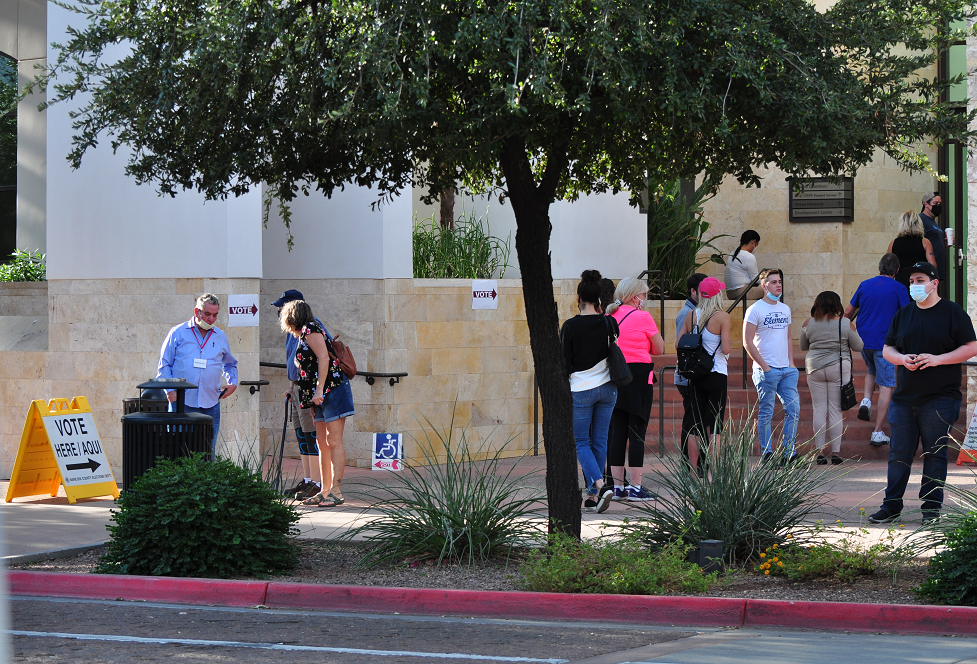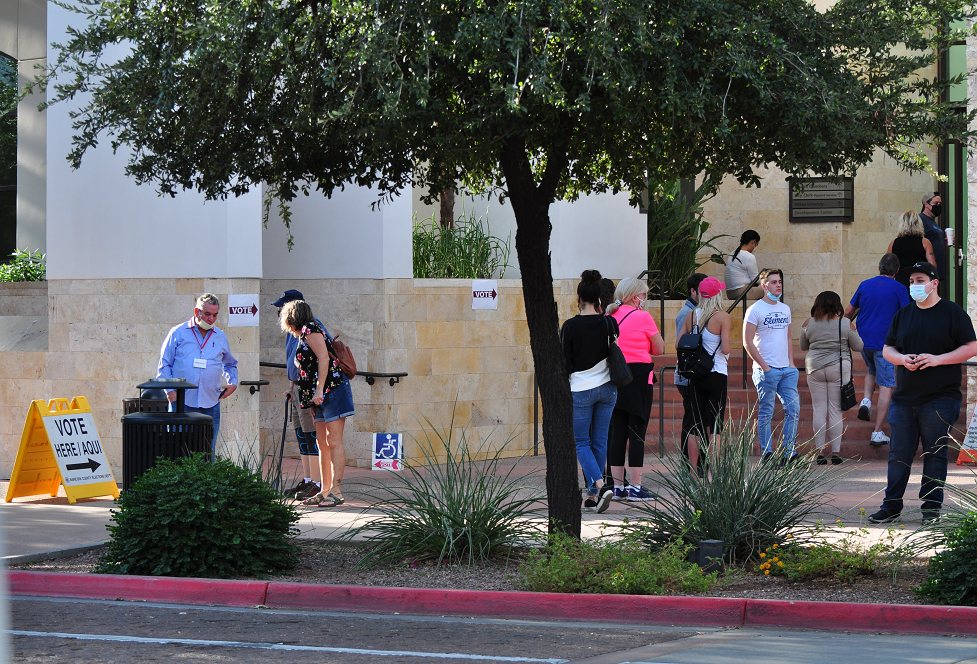School board member elections may be at the bottom of the ballot, but they may be top of mind for many voters in November.
Paul Bentz with HighGround Inc.
“Traditionally, as you get further down the ballot, we see a recession in voter participation. It can be as much as a 20% to 30% reduction,” said Paul Bentz, senior vice president of research and strategy at HighGround Public Affairs Consultants during a presentation to Arizona Association of School Business Officials on Sept. 7.
But that could change in the Nov. 8 general elections after a year of heightened public focus on school boards’ decisions. Demographics may play a role in these traditionally nonpartisan school board elections, so school board members should share what’s happening in schools with their communities, Bentz said.
“Only about 30% of voters have kids at home, that means the other 70% are not getting your communications. They’re not seeing the board minutes. They’re paying attention to Fox News or some other Cable News Network that’s spewing information based on conspiracies and other items,” Bentz said at a discussion hosted by Friends of the Arizona School Boards Association, a private, nonprofit organization committed to filling the need for trusted information on state-level K-12 education issues, at the ASBA Law Conference on Sept. 8.
That’s why it’s important to show community members and elected officials “what you are doing, explain and give them tours, talk about the programs that you’re offering, and be as transparent as possible,” Bentz said.
School boards’ responsibilities
Monica Trejo
School boards are one of the United States’ oldest forms of democracy and have been representing their communities since the people of Dorchester, Mass., elected people in 1645 to efficiently oversee their grammar school, said Monica Trejo, a school board member of Tempe Elementary School District and president of the board of directors for Arizona School Boards Association.
“Many of those duties remain the same for our school board members today. This includes employing the superintendent, developing and adopting various policies, curriculum, monitoring and approving the budget,” Trejo said.
“The most important responsibility for school boards is to work with their communities to improve student achievement,” Trejo said.
As one of the nation’s oldest, most local, and smallest forms of representative government, school board members are the most accessible elected officials, Trejo said.
“Unlike those who are elected to government at the state and federal levels, we are the closest to the people we represent because we govern among the people, the local community,” Trejo said. “We are unpaid elected officials in Arizona that are beholden to our students, parents, staff, and community members. “
“School board members lead the district and set the vision. They are tasked with making consequential decisions that impact teaching and learning every day,” Trejo said.
School boards respond to legislation
In the past year, school boards have faced challenges by Gov. Doug Ducey and Arizona Legislature to their COVID-19 and masking policies, a failed effort by a state legislator to make school board elections partisan and change school board meeting laws, and bills approved and signed into law that require schools to provide parents access to a list of books in school and classroom libraries, as well as universal vouchers that use public taxpayer dollars to pay for students’ private school tuition.
School boards have appreciated the Arizona Legislature approving bills for a special education cost study, lifting the aggregate expenditure limit for this school year to allow public district schools to spend the money appropriated to them by the state legislature, increasing per-pupil funding, district additional assistance, special education Group B weight funding, and appropriating new funding for low socioeconomic students, increasing school safety funding, and additional building renewal grant funding, as well as providing funds to educate youth in county jails, grants for a student computer code writing curriculum for Native American high school students, and letting career and technical education districts offer degrees.
“Your local school board is the place where local, state and federal rules and laws are translated into actions that directly impact students and staff,” said Chris Kotterman, director of governmental relations for Arizona School Boards Association.
Why people should run for their local school board
It’s important for people to run for school board to support the future of Arizona and our students, Trejo said.
“We need interested, engaged, and service-minded people to run for school board, people who support and believe in all students, regardless of their background, and believe in the importance of strengthening our public schools,” Trejo said.
“In addition, we need strong, locally-governed school districts. Campaigning and governing are not the same,” Trejo said.
“Once elected, it is essential for our newly elected board members to understand how to govern efficiently and effectively,” Trejo said. “Understanding board member roles, ethics, and relevant laws are critical.”
Highly effective board members continuously participate in professional development which has been linked to improving student outcomes, Trejo said.
 Voters lined up to vote and visiting with each other after voting outside Surprise City Hall on Election Day Nov. 3, 2020. Photo by Lisa Irish/ AZEdNews
Voters lined up to vote and visiting with each other after voting outside Surprise City Hall on Election Day Nov. 3, 2020. Photo by Lisa Irish/ AZEdNews













